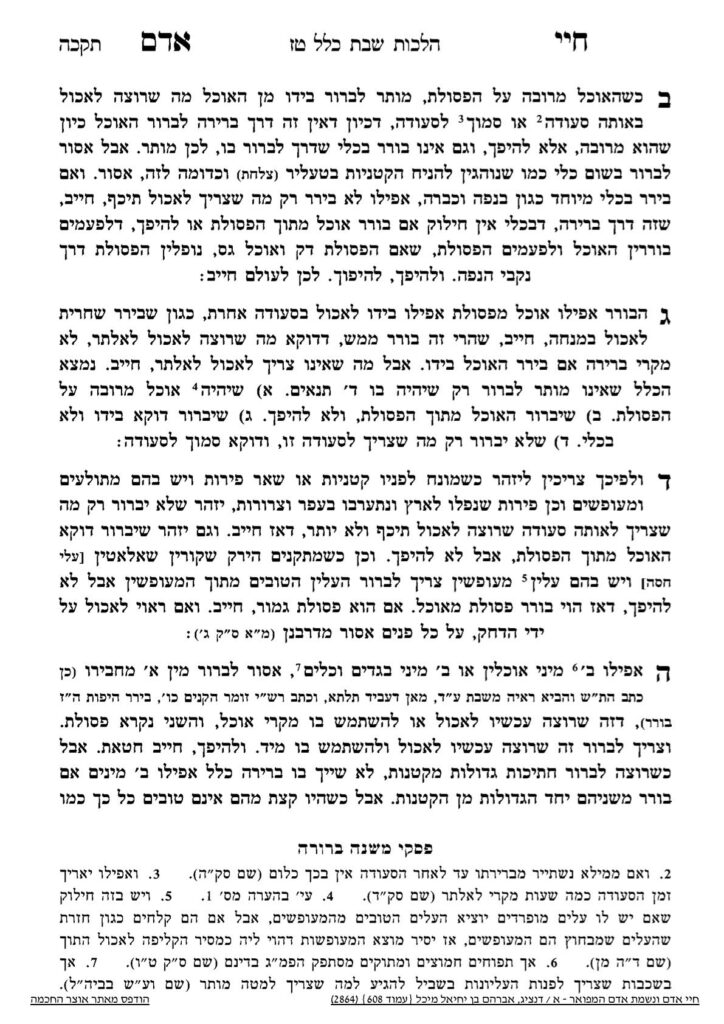We are beginning siman 4. In the first three simanim, we learned the criteria in which borrer will become muttar. In siman 4, the Chayei Adam gives some examples.
The Chayei Adam writes that if one has edible seeds or fruits which some have bugs or have begun to spoil, or if dirt has gotten mixed into the food, one can only cleanse an amount which they expect to use for the upcoming meal. If they cleanse more than necessary for their immediate meal, it is an issur deoraysa.
Regarding how one calculates the amount they will use in a meal, one does not need to measure a precise amount. They can prepare an amount that they will (reasonably) possibly use, even if it is practically unclear. If one knows they will not use it, and is only preparing the food for a later time, it is certainly assur.
One must also be careful that they are preparing for immediate use, as we have discussed. Similarly, one must remove the good from the bad and must do so by hand.
The Chayei Adam adds another example. If one is sorting lettuce, they must choose the good leaves and leave the bad, rather than removing the bad leaves and keeping the good.
When discussing the edible seeds or fruits, the Chayei Adam wrote that if it is not for immediate use, it is assur mideoraysa. Regarding the lettuce, the Chayei Adam does not write anything, because we differentiate between whether the leaves are inherently edible but not desirable and leaves which are inherently inedible. If they are inherently edible, it is not considered borrer deoraysa.
To understand this point, we must realize that, on the other hand, the halacha is that choosing between a more desirable and less desirable food which are mixed together is considered borrer mideoraysa. The Magen Avraham explains that only when there are two different types of foods mixed together, it is borrer mideoraysa to choose one over the other (without the conditions we have learned). The fact that it is two different types of food means that there is a borrer process happening, in that the person is choosing one over the other. If however, it is one type of food, k even if one prefers some of that type over another, borrer mideoraysa does not apply.
The same is true for a head of lettuce: if both the “good” and “bad” leaves are edible, it is considered one type of food, and the borrer of one type of lettuce leaf is not really different that the borrer of another type of lettuce leaf. If however, the “bad” leaves are inedible, it is considered two different type of food and would be assur mideoraysa to separate. Therefore, the Chayei Adam does not write the issur for sorting the lettuce, as it will depend on the state of the leaves.
Summary
- When preparing an amount of food for use within a meal, one does not need to be precise, but can prepare an amount which is possible they will consume, even if it is not certain.
- There is no borrer when it comes to the same type of food, unless part of the food is totally inedible, at which point it is considered a different type.



